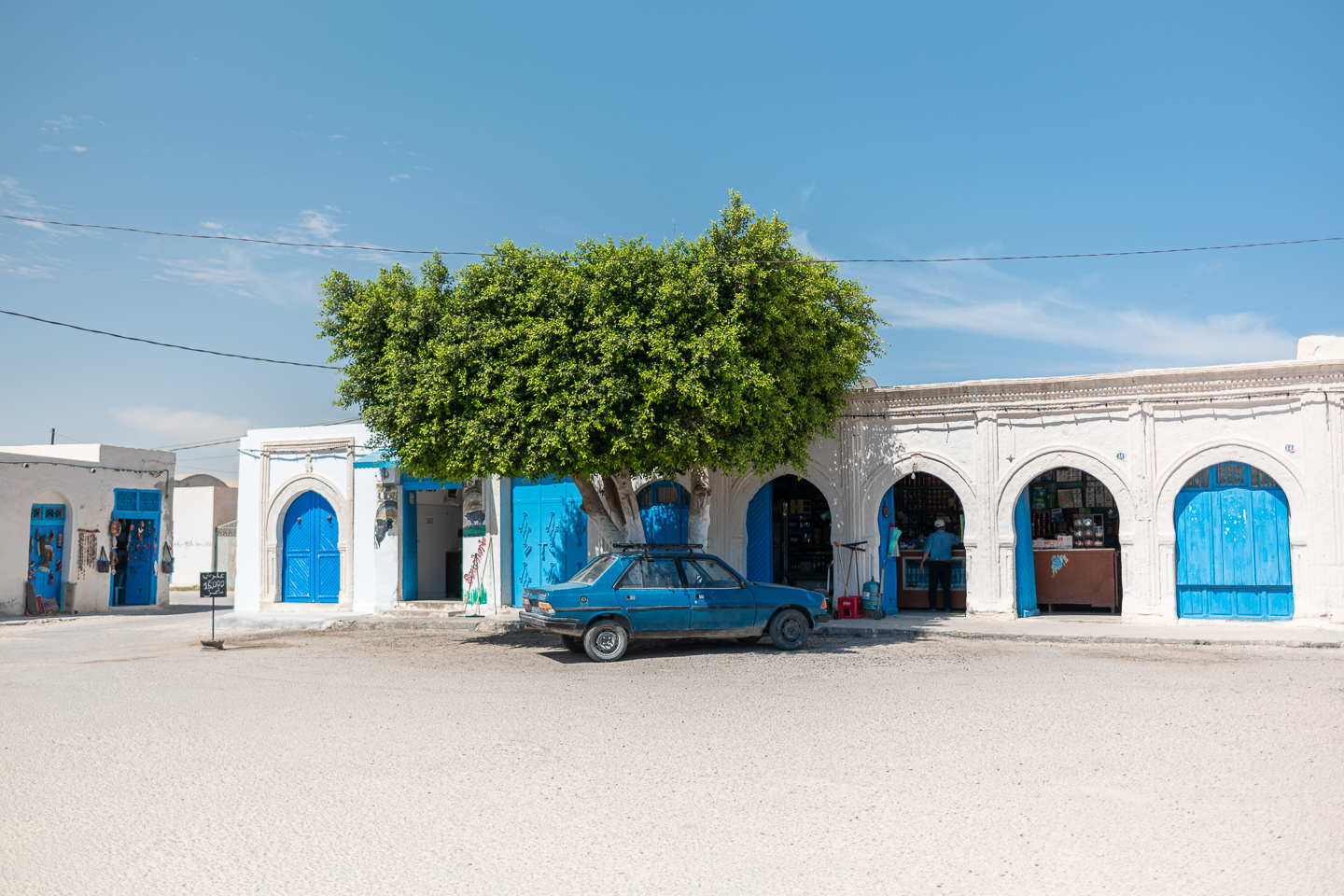+216: A Long Call Home (2011—Ongoing)
Al-ghurba — in Arabic, the word names estrangement, the state of belonging at a distance. This project is my record of that condition, lived through years of departure and return, presence and absence.
For nearly fifteen years I have returned to Djerba with a camera in hand. What began as homesick snapshots became a ritual of reconnection — a visual diary of presence and absence, closeness and dissonance. Each visit, I carried back printed photographs from the previous one, gifts for grandparents, aunts, cousins. Sometimes I photographed them holding those prints, completing a fragile loop of memory and presence. Photography became my way of holding onto continuity as my life dispersed across geographies.
I was born in Djerba in 1987, on an island where identity is precise and unyielding. To be Djerbian is to be rooted, yet destined to leave: merchants departing to sustain families they may never fully return to, faith carried in Ibāḍī traditions that mark us as distinct within Tunisia and the wider Muslim world. Estrangement was inscribed before I ever left.
In 1999, I joined my father in France. There, I was Tunisian, Arab, immigrant. Each summer return marked me as more French. I was raised within the Association Djerbienne de France — of which my grandfather was a founding member — an Ibāḍī community devoted to preserving the island’s cultural identity abroad. My camera became an extension of that effort: not a public archive, but a personal one, attentive to evolving traditions, generational shifts, and the quiet transformations of a place both familiar and changing. By the time I settled in San Francisco in 2011, the distances had stretched to their widest — yet the farther I lived, the stronger my compulsion to return.
The project’s title recalls the landline calls I made to Djerba in the early 2000s. Dialing +216 — from a home phone, a taxiphone, or a phone booth — was both routine and sacred. Each call was a ritual, an incantation that shifted me into another language, another self. The connection was intimate yet incomplete: voices near, bodies far. My photographs work in the same way — images as long calls home, gestures of continuity, small acts of return.
Over the years I have seen Djerba change. Friends have graduated, married, built homes, welcomed children. We have lost parents and elders. Villages have grown into small towns, reshaped by return migration and slow modernization. My photographs sit at the intersection of devotion and drift: proof of return, yet reminders of absence.
The warmth and idyll in these images are deliberate. They do not erase al-ghurba but resist its bitterness. They reimagine home as I want to remember it — familiar faces, enduring landscapes, fragile intimacies.
+216: A Long Call Home is not a nostalgic document of what is lost, but a record of desire: the desire to preserve home, to reconnect, to resist estrangement. In the oscillation between presence and absence, intimacy and distance, my ghurba finds its form.














